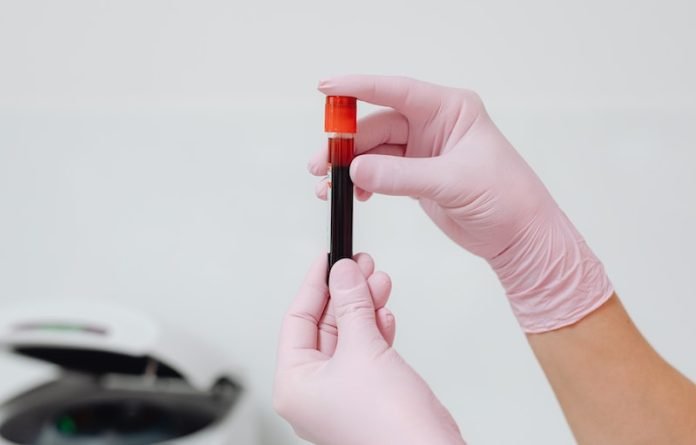
A group of biomedical researchers at Vanderbilt University and elsewhere has made a significant discovery that could help prevent blood cancer.
The researchers have found a new way to measure the growth rate of precancerous clones of blood stem cells that could one day help doctors lower their patients’ risk of developing blood cancer.
The technique, called PACER, led to the identification of a gene that, when activated, drives clonal expansion.
The findings suggest that drugs targeting this gene, TCL1A, may be able to suppress clonal growth and associated cancers.
Blood cancer is a type of cancer that starts in the blood-forming cells of the bone marrow, which are responsible for producing red and white blood cells and platelets.
When blood cancer develops, the bone marrow produces too many abnormal cells that do not function correctly. Blood cancer can develop in anyone, but older adults are more at risk.
More than 10% of older adults develop somatic (non-inherited) mutations in blood stem cells that can trigger explosive, clonal expansions of abnormal cells, increasing the risk for blood cancer and cardiovascular disease.
The PACER technique, which stands for “passenger-approximated clonal expansion rate,” was applied to over 5,000 individuals who had acquired specific, cancer-associated driver mutations in their blood stem cells, called “clonal hematopoiesis of indeterminate potential” or CHIP, but who did not have blood cancer.
The researchers used a genome-wide association study to identify genetic variations associated with different clonal growth rates.
To their surprise, they discovered that TCL1A, a gene which had not previously been implicated in blood stem cell biology, was a major driver of clonal expansion when activated.
They also found that a commonly inherited variant of the TCL1A promoter, the DNA region that normally initiates transcription (and thus activation) of the gene, was associated with a slower clonal expansion rate and a markedly reduced prevalence of several driver mutations in CHIP, the second step in the development of blood cancer.
The researchers hope that their discovery will lead to new treatments for blood cancer, as well as other types of cancer.
How to prevent blood cancer
Blood cancer is a serious illness that affects the production and function of blood cells.
Unfortunately, there is no surefire way to prevent blood cancer from developing, but there are some steps you can take to reduce your risk of developing this condition.
Stay Active: Regular physical activity is essential for good health and can help reduce the risk of developing cancer. Exercise helps boost the immune system, reduce inflammation, and keep the body functioning well.
Eat a Balanced Diet: A healthy, balanced diet that is rich in fruits, vegetables, whole grains, and lean protein can help reduce the risk of developing cancer. Eating a diet that is high in fiber and low in fat and sugar can also help keep the body healthy.
Quit Smoking: Smoking is a significant risk factor for many types of cancer, including blood cancer. If you smoke, it’s essential to quit as soon as possible.
Limit Alcohol Consumption: Drinking alcohol in excess can increase the risk of developing cancer. It’s important to limit your alcohol intake to no more than one drink per day for women and two drinks per day for men.
Protect Yourself from the Sun: Exposure to the sun’s harmful UV rays can increase the risk of developing skin cancer, which can spread to the blood.
To reduce the risk of developing skin cancer, it’s important to wear sunscreen, protective clothing, and hats when you’re outside.
Get Regular Checkups: Regular checkups with your doctor can help detect cancer early when it’s easier to treat.
It’s important to discuss your risk of developing cancer with your doctor, especially if you have a family history of the disease.
While there is no surefire way to prevent blood cancer, following these steps can help reduce the risk of developing this serious illness.
It’s important to take care of your health and stay informed about the latest research and recommendations related to cancer prevention.
If you care about cancer, please read studies that a low-carb diet could increase overall cancer risk, and vitamin D supplements could strongly reduce cancer death.
For more information about health, please see recent studies about a safer, more effective cancer therapy, and results showing too much peanut intake may increase spread of cancer.
The study was published in Nature.
Copyright © 2023 Knowridge Science Report. All rights reserved.



